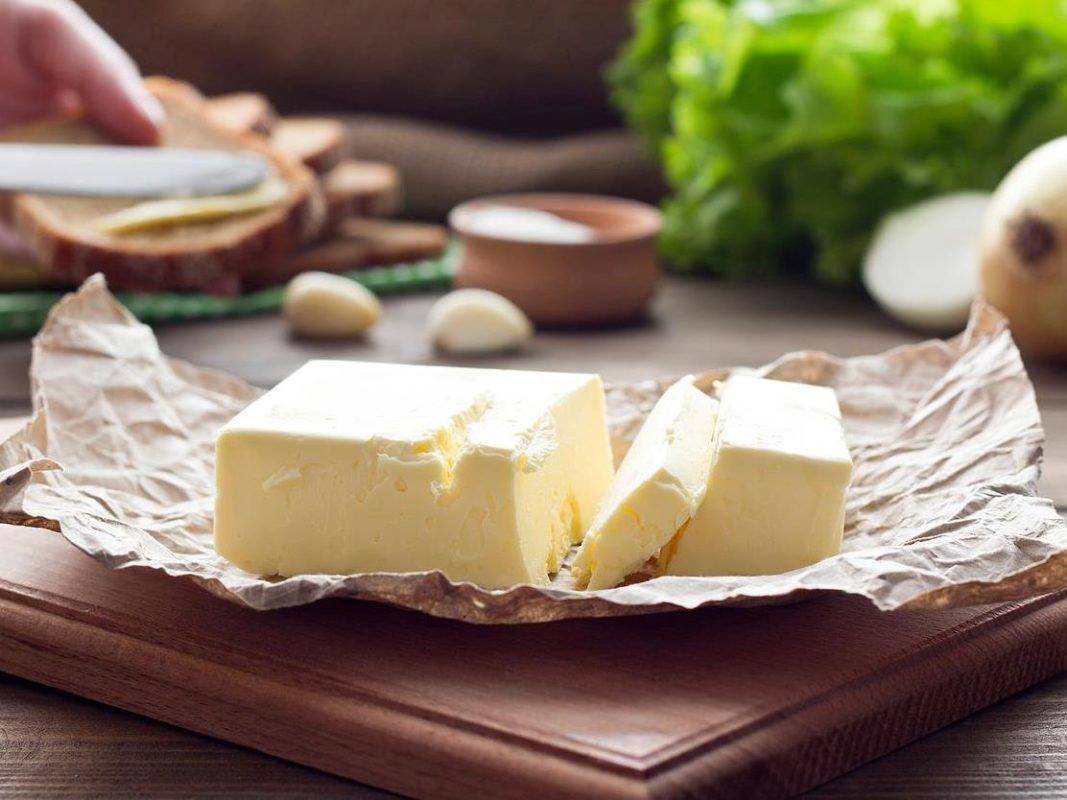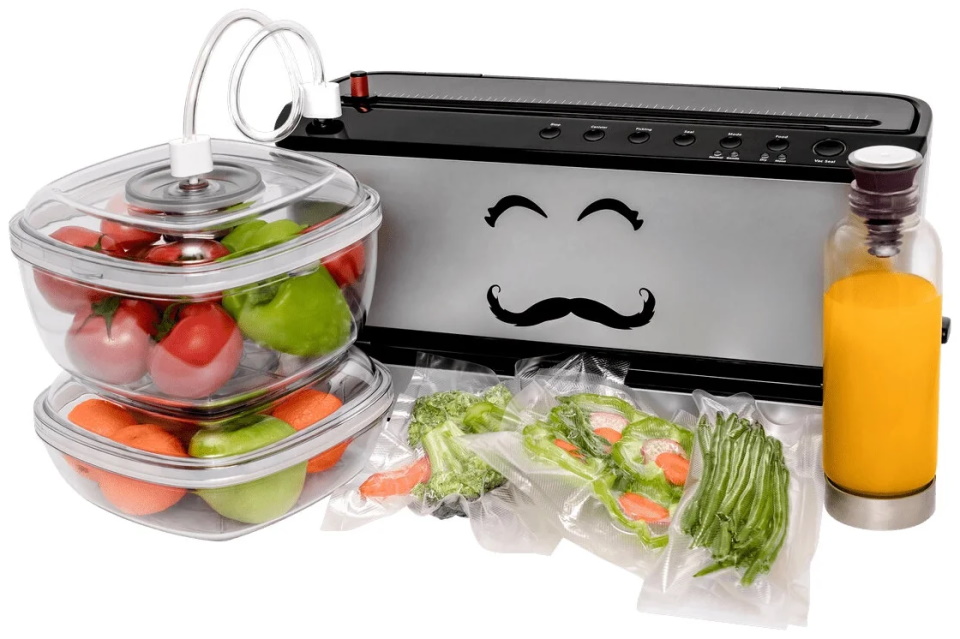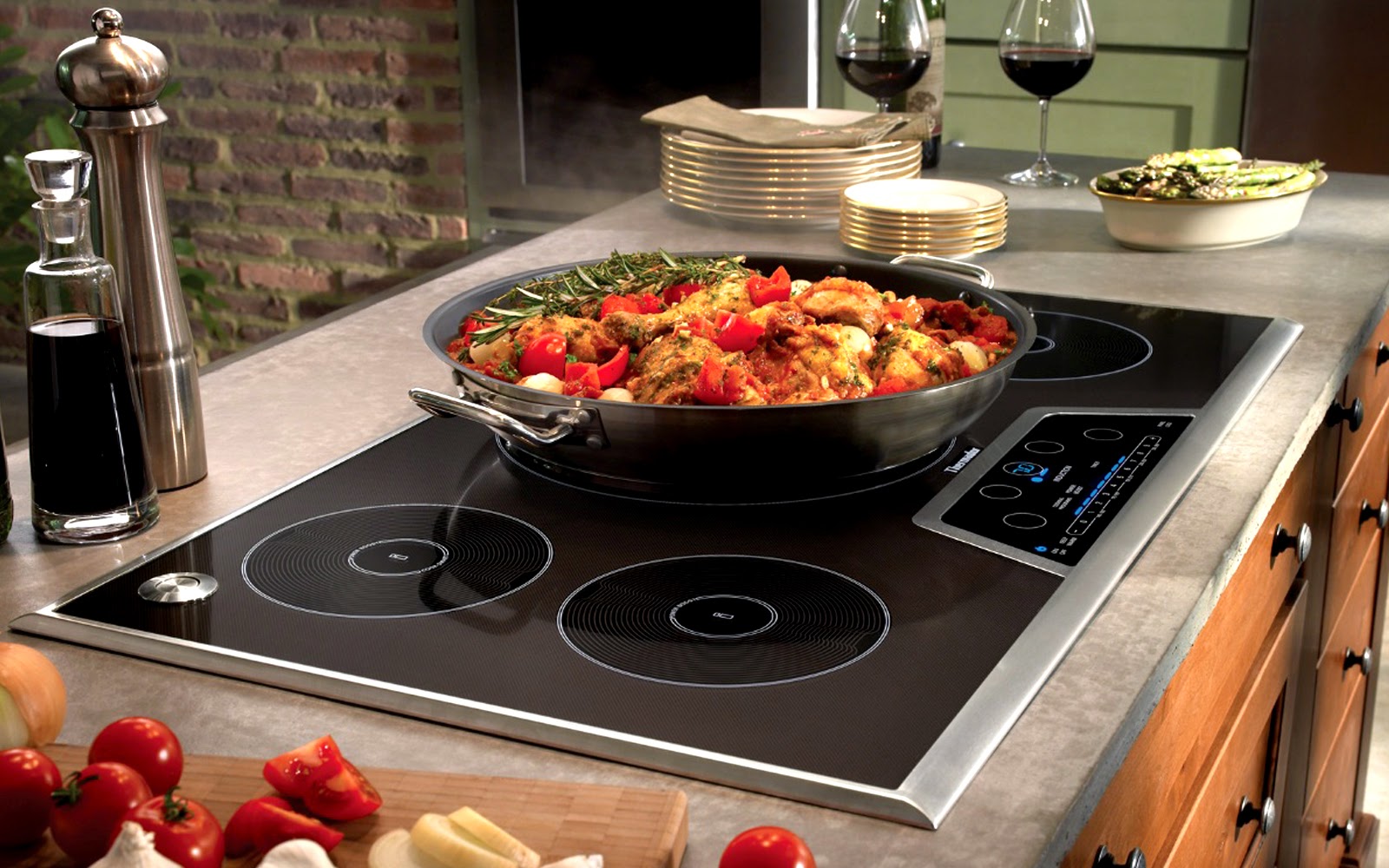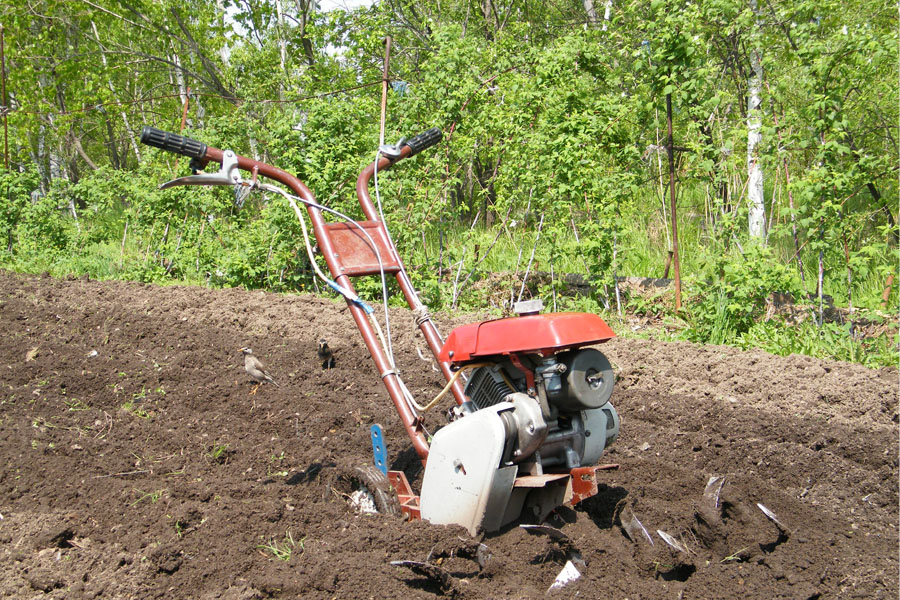Rating of the best tile grout manufacturers for 2022
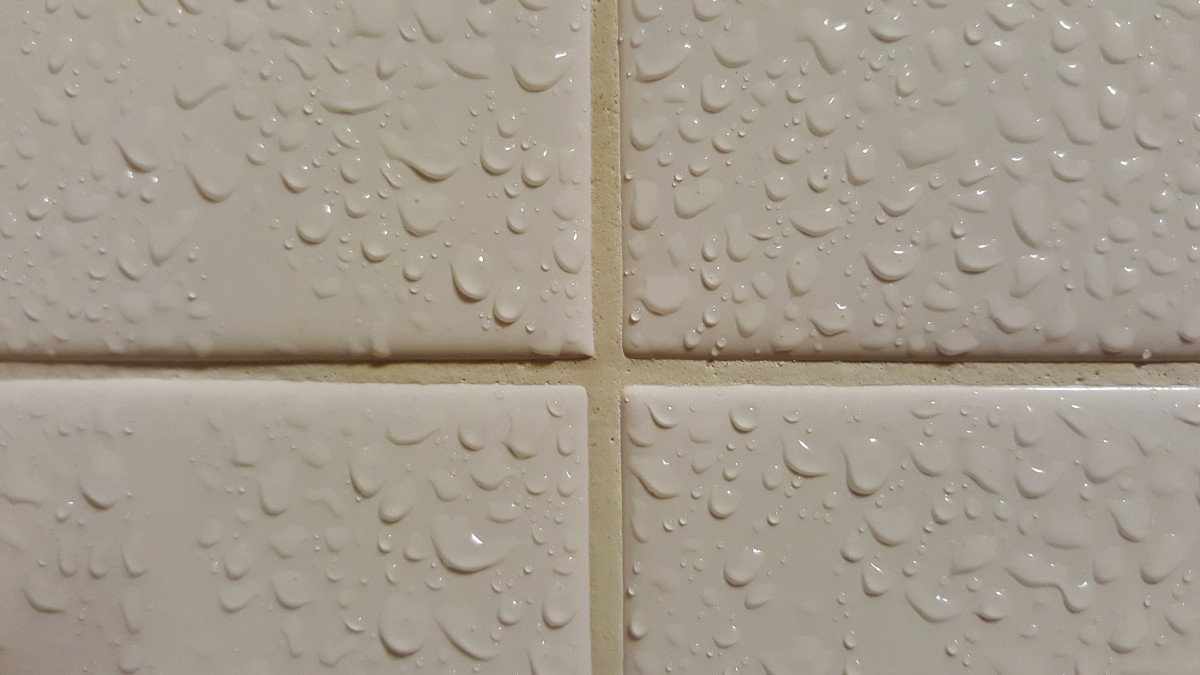
After installing the tiles, the next step is to clean the gaps between the tiles. This task is no less time consuming than the cladding process. How to choose the right building material so that the tile lasts a long time, pleases with a beautiful design, and does not spend a lot of money? Below is a ranking of the best tile grout manufacturers for 2022 with advantages, disadvantages and features.
Content [Hide]
Which type of solution is better to buy?
There are such types of solutions:
- cement mortars consisting of a Portland cement base;
- epoxy solutions;
- furan solutions;
- based on polyurethane;
- latex.
Description:
| View | Characteristic | Peculiarities | Advantages | Flaws |
|---|---|---|---|---|
| Cement | cement fugues with various additives; | for small seams 3-5mm; a mineral-based fugue to allow wider seams to be processed; | strength; prolonged freezing; cheapness; | poor color scheme; prolonged freezing; it is undesirable to use at high humidity; Porosity can cause mold growth; |
| Epoxy | hardener and resin. | used in places with high humidity; used in swimming pools; | hardens quickly; does not crumble; strength and chemical resistance; complete water tightness; resistance to temperature changes (-15 to +100С); does not crack; rich colors; does not fade; | price; very difficult to remove after drying. |
| latex | for joints up to 30 mm and more; | used in combination with other solutions; | elasticity; used for wide joints; large color range; crack resistance; | high cost; traces on the tile are poorly rubbed off; |
| Furan | mixed with latex for toughness or Portland cement for strength. | Not recommended for use in poorly ventilated areas; | water resistance; moisture resistance fade resistance; wear resistance; | only black color; use only in "open" air or ventilated places; |
| Polyurethane | polyurethane-based fugue, used for joints up to 6 mm wide; | used for narrow joints; | moisture resistance; no need for preparation, breeding; does not crack; easily removed from the surface; | dries slowly; dissolves in liquids with chlorine in the composition; |
In addition to decorative functions, the mixture will also perform protective against:
- dust and dirt;
- high humidity;
- sudden changes in temperature;
- sun rays;
- insects;
- mold.
Grout Tips
- When the mixture is selected under the tiles in the kitchen, toilet, cement mortar is the best option.
- For ceramic tiles located in bathrooms, latex or polyurethane mixtures are chosen.
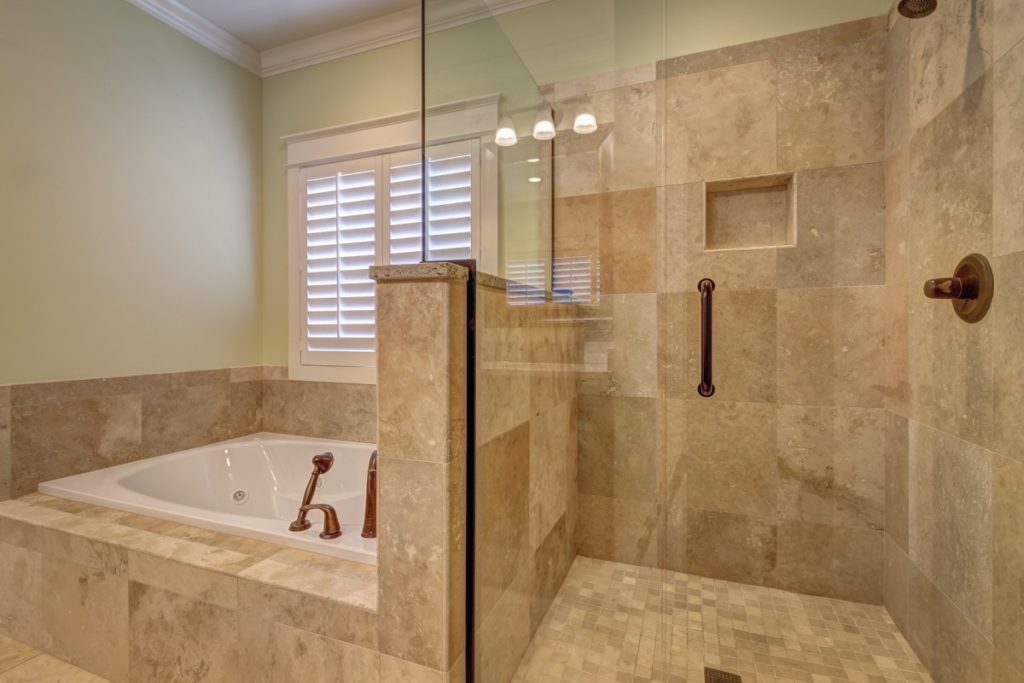
- If the tile is located in a zone of high humidity, for example, in a pool or shower, polyurethane or epoxy grout is used.
- On heated floors, in cold rooms or outdoors, use: latex, polyurethane, furan mixture with good elasticity.
- On the facade of buildings, special solutions are used for grouting the joints of clinker tiles. They have increased frost resistance and are resistant to UV radiation to avoid fading and cracking.
The range of colors and shades is extensive, but there are no special recommendations on what to look for. Selection criteria are based on taste, priority and financial capabilities.
What to look for when choosing
When choosing this material, it is worth considering:
- The foundation. A cement based product will be cheaper and easier to apply. It often needs to be diluted with water. "Epoxy" will cost more, but it is also a more durable and moisture resistant material.
- The width of the gaps between tiles. The designation on the package that at this thickness the grout will not crack after hardening.
- Hue.Incorrectly selected colors can visually ruin the look of a wall or floor.
In order to avoid mistakes when choosing a mixture, it is important to measure the thickness of the resulting seam after completing the laying of the tiles, before purchasing the material. Based on these data, choose a mixture, otherwise the grout may crack, spoil the appearance of the tile and all the work will have to be redone. On the packaging with the product, the manufacturer indicates the width of the seams in which it is recommended to use it.
How to choose a seam material?
Small joints, 1-3 mm in size, prefer plastic fugues without fillers.
For gaps up to 6 mm, it is better to purchase a grout with fine sand.
Large wide seams with a size of 10-20 mm are treated with a mixture filled with a large fraction.
How to grout tiles
Grouting old tiles is not a complicated process, it can be done in 4 steps:
- Remove dust, dirt, adhesive residue from tiles. Prepare a small amount of solution.
- Treat each seam with an antifungal compound applied to a damp cloth.
- Process the seams start from the far corner of the room. The spatula fills the gaps between the seams. Remaining grout is removed.
- In order to prevent cracks, it is necessary to wet the seams. This step is performed when the mortar has hardened slightly. It is important to consider: in the process of solidification of the material, the space between the seams sags. Therefore, the joints are processed several times, and the borders of the tiling are sealed with silicone sealant. Grouting floor tiles is not difficult at all, it will take a professional about 30 minutes (depending on the size of the room), and about an hour for a beginner.
How much does the solution cost
When laying tiles and processing seams with your own hands, it is important to correctly calculate the consumption of the mixture, important criteria: the size of the tile and the width of the joints.
The price is affected by the characteristics of the raw materials from which the grout is made. Packing from kilogram to 25 kg. There are many budget options for mixtures.
- An inexpensive grout in 2022 with a volume of 1-2 kg for tile joints can be purchased for 100-130 rubles. A solution weighing 25 kg will cost from 2,000 rubles, a cement-sand mixture - up to 4,500 rubles, depending on the manufacturer.
- "Epoxy" packing in 1 kg will cost 1000-1250 rubles. A bucket weighing 10 kg - from 5,000 to 11,000.
- The polyurethane mixture will cost 1100-2400 rubles per 1 kg. A container with a volume of 2.5 kg - from 2000 to 5500 rubles.
- Latex grout weighing 2 kg can be purchased for 400-650 rubles.
- The price of furan mixtures starts from 800 rubles/kg.
Overview of the best manufacturers
According to buyers, in the building materials market in 2022, the leading positions are occupied by such manufacturers of solutions for processing joints between tiles:
| № | Name | Rating |
|---|---|---|
| 1 | Ceresit | 4.9 |
| 2 | mapei | 4.8 |
| 3 | Kiilto | 4.6 |
| 4 | Litokol | 4.5 |
| 5 | Weber Vetonite | 4.4 |
| 6 | sopro | 4.2 |
| 7 | Isomat | 4 |
| 8 | PLITONIT | 3.9 |
| 9 | Prospectors | 3.7 |
| 10 | whitehills | 3.5 |
The rating of high-quality building mixtures for seam processing is based on consumer feedback. By choosing these manufacturers of building mixtures, you can be sure of the declared quality. Some mixtures have the following functionality:
- water resistance;
- frost resistance;
- do not fade over time;
- color palettes are represented by a wide variety of shades.
Since repair is not a cheap pleasure, it is better not to save on high-quality building materials.Then the lined surface will last more than one year, will not lose color, will not crack and will not have to redo all the work.
10th place - White Hills
votes 0
White Hills process the joints of natural stone, brick, paving slabs. Used for facades, walls, paving slabs. Most often, the mixture is sold packaged in bags of 25 kg. Cost: from 970 rubles.
- frost resistance;
- strength;
- durability;
- the mixture hardens within an hour;
- it is necessary to perform work at +5 to +30 C, avoiding sunlight;
- a mixture of two colors;
- high consumption;
9th place - Prospectors
votes 0
Prospectors-cement, one-component dry mix. For seams 1-6 mm; most often used for:
- natural stone;
- porcelain stoneware;
- ceramic tiles;
Color range - 21 colors. Packs of 5 kg are available only in white. The cost of 2 kg: from 100 rubles.
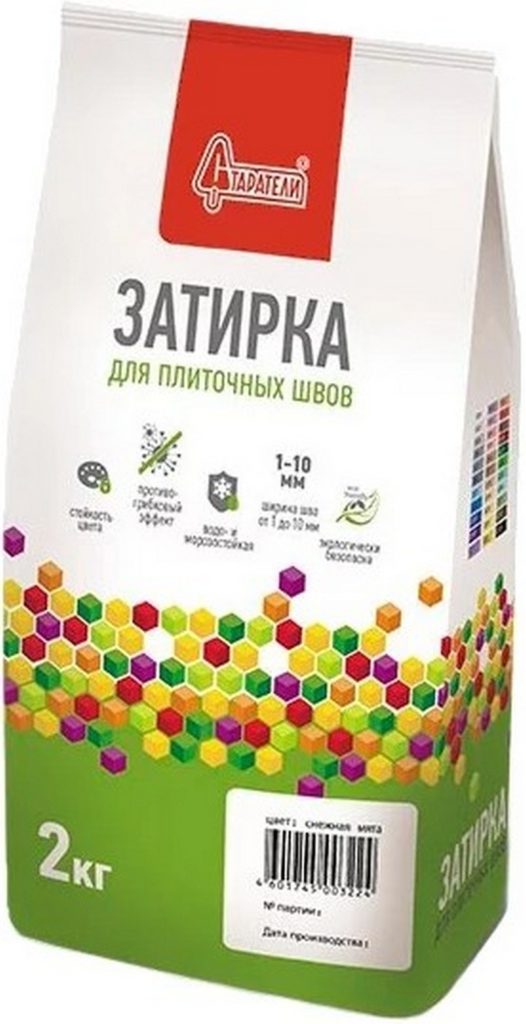
- frost resistance;
- a wide selection of shades;
- antifungal impregnation;
- for finishing works;
- after a few days, the grout will acquire the final shade;
- drying time days;
- the service life of the solution is 1 hour;
- applied at + 5–30C;
- the material is not resistant, crumbles;
8th place - PLITONIT
votes 0
Building mixture based on cement. Suitable for:
- porcelain stoneware;
- ceramic tiles;
- artificial and natural stone;
- for grouting joints on the floor and on the walls, for interior and exterior work;
Average price: 700 rubles per bag weighing 20 kg.
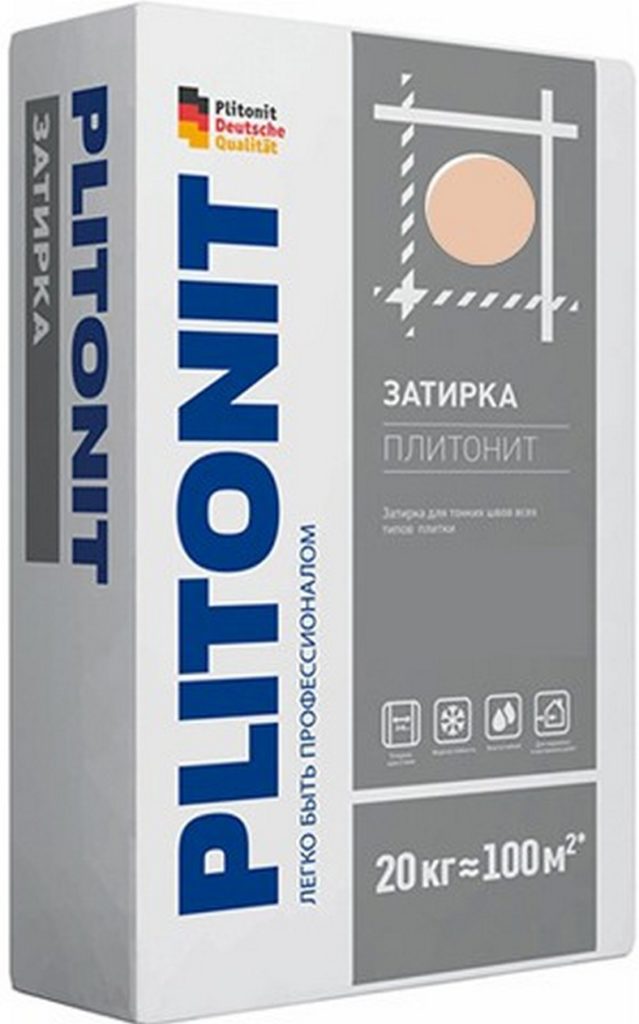
- low price;
- the time of use of the finished mixture is 2 hours;
- water and frost resistant;
- surface operation: after 24 hours;
- application temperature +5°С…+30°С.
7th place - Isomat
votes 0
Isomat contains antibacterial components that protect the seams from the accumulation of harmful organisms.
Grout is used for:
- outdoor work;
- internal works;
- artificial stone;
- bathroom;
- facades;
- ceramic tiles;
- kitchens;
- clinker tiles;
The cost of a mixture weighing 2 kg: from 400 rubles.
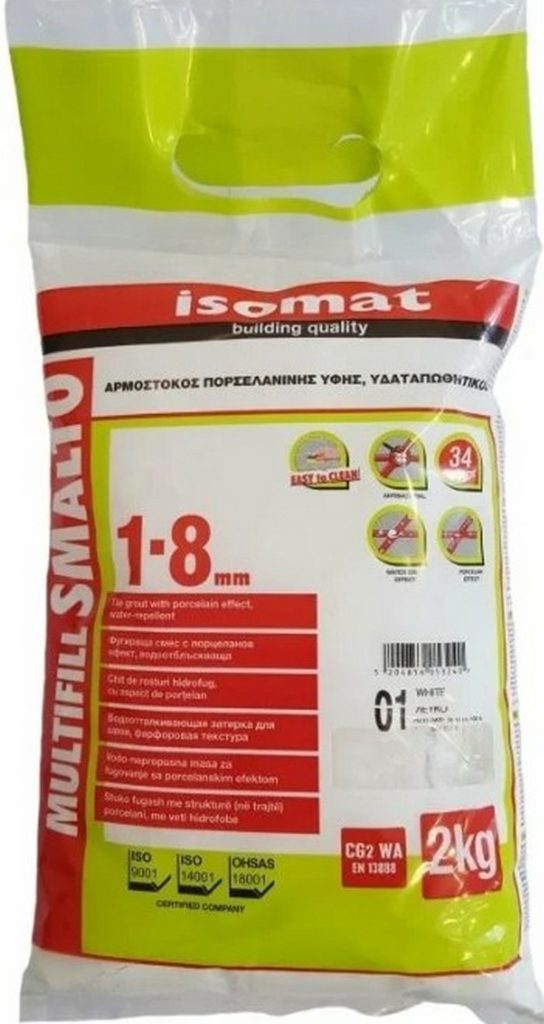
- moisture resistance;
- anti fungal impregnation;
- the service life of the solution is 2 hours;
- 3 colors;
- application temperature 5–35°C;
6th place - Sopro
votes 0
Cementitious fast-drying grout with long-lasting colour, for processing joints of ceramic tiles and products made of natural stone, glass mosaics. It can be used on heated floors, for damp and wet rooms, as well as for food contact areas. The cost of 2 kg of Sopro Saphir 5 mixture: from 300 rubles.
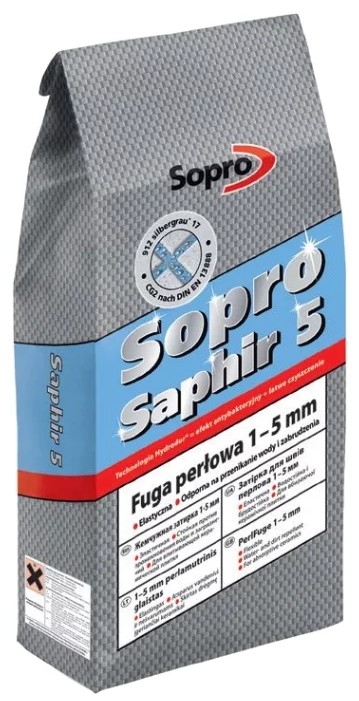
- fast hardening;
- for interior and exterior decoration;
- waterproof;
- resistant to pollution;
- you can walk on the tiles after 2 hours;
- the finished solution hardens in 30 minutes;
- application temperature +5+25;
5th place - Weber Vetonit
votes 0
Among the large selection of building materials on the market, Weber Vetonit DECO mixtures are popular. Grout for tiles of this manufacturer are distinguished by quality and affordable price. It is applied for:
- ceramic tiles;
- for porcelain stoneware and stone;
- glass tiles and mosaics;
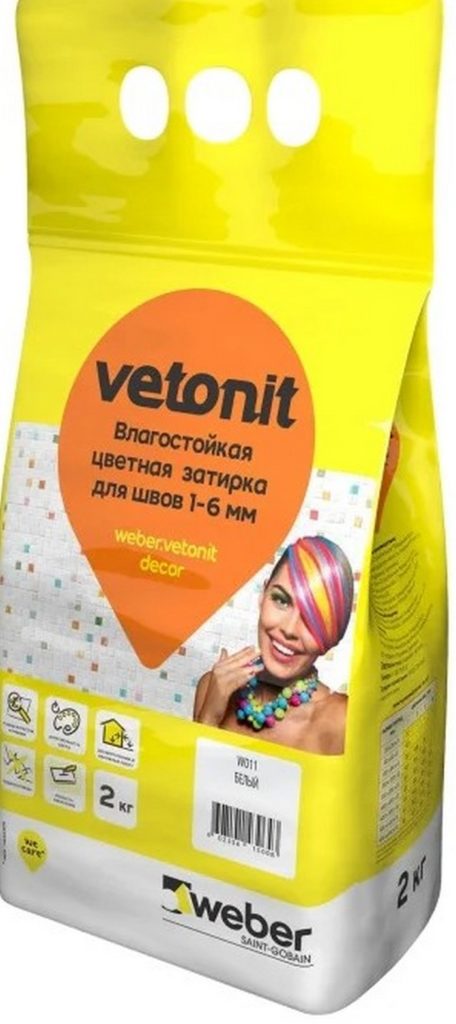
- provides a smooth surface of seams;
- the structure provides dense filling of big seams;
- you can walk on tiles treated with this solution after 3-4 hours;
- moisture resistance.
- it is impossible to grout tile joints at temperatures below +5 and above +30 C;
- the plastered surface dries slowly.
4th place - Litokol
votes 0
Produced by the Italian company of the same name. Litokol grout is a two-component grout. After hardening, the mixture does not change its shade, it is used both for internal and external works. Suitable for grouting such material:
- porcelain stoneware;
- glass mosaic;
- natural stone;
- fake diamond;
- wood;
- large pebble.
The color palette is very diverse and is represented by 90 shades. At the price of Litokol Litochrom 1-6 Luxury 2 kg, the capacity will cost from 320 rubles.
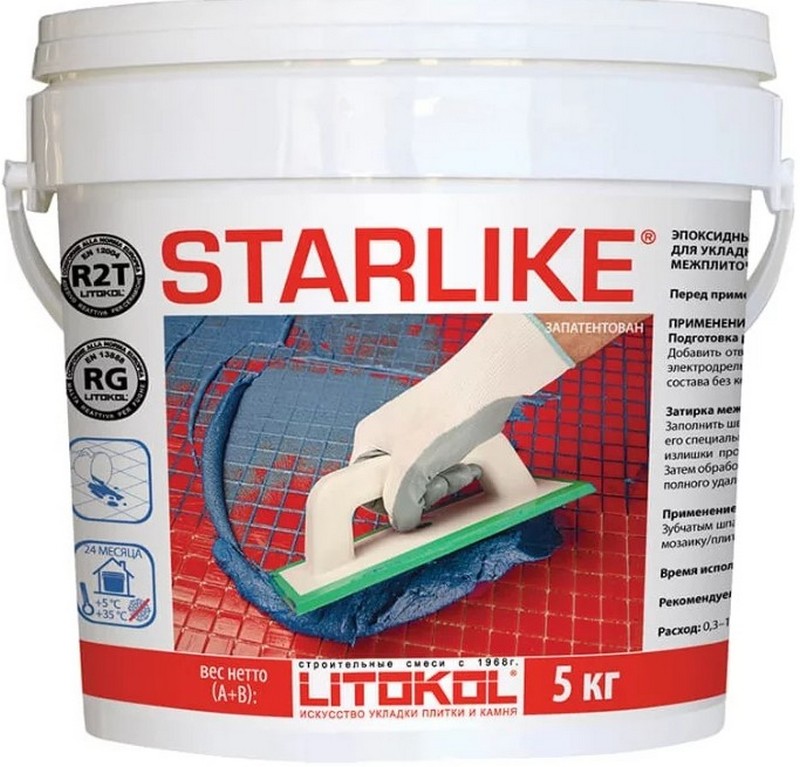
- high strength;
- moisture resistance;
- anti fungal effect;
- the life of the finished mixture is 60 minutes;
- you can walk on tiles treated with this solution in a day;
3rd place - Kiilto
votes 1
Kiilto building mixtures are used for both exterior and interior decoration. It copes well with the processing of tiles in the bathroom, has positive feedback when installing underfloor heating systems.
A mixture for processing tile joints, represented by 2 types:
- Klinkkerisaumalaasti - for clinker and stone coverings;
- Saumalaasti - for tiles.
The color palette is represented by 32 shades. The average price of Kiilto Saumalaasti weighing 1 kg is from 520 rubles.
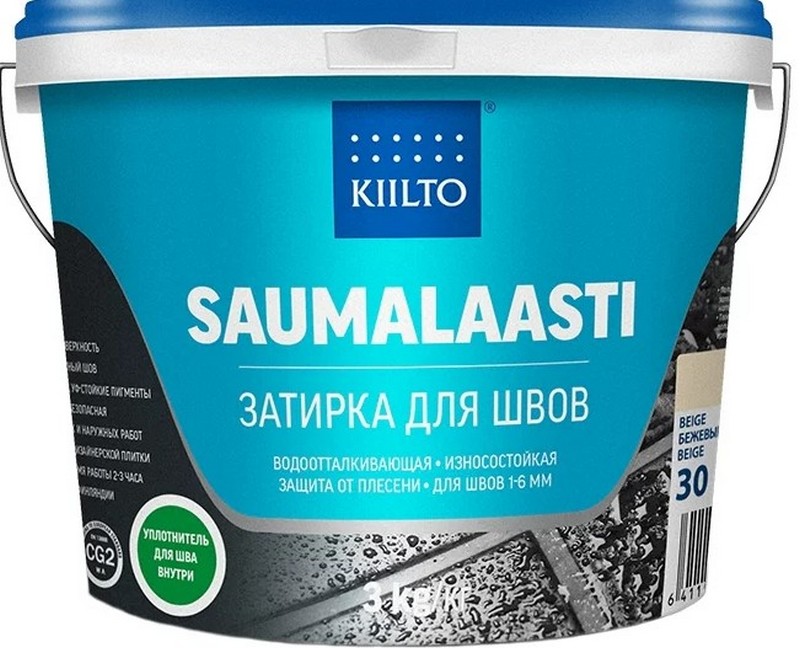
- the mixture can be used within 2-3 hours from the moment of preparation;
- frost-resistant;
- not combustible;
- heat and water resistant;
- frost, heat, UV resistance;
- prevents the formation of fungus and mold
- the product is presented in 5 colors;
- although the material is safe for humans, experts still warn that prolonged contact with unprotected skin and inhalation of dust from the solution should be avoided; the stated time dries for a long time;
- high price;
The manufacturer gives a guarantee of quality under the condition of proper storage and transportation of the product. This fact is confirmed by user reviews.
2nd place - MAPEI
votes 0
Mapei mortar is characterized by durability, strength and dirt-repellent characteristics. During operation, they do not fade, do not deform from changes in temperature and humidity, retain all the positive qualities. The average price of Mapei KERAPOXY N 132 NEW FUST 2 kg: 1474 rubles
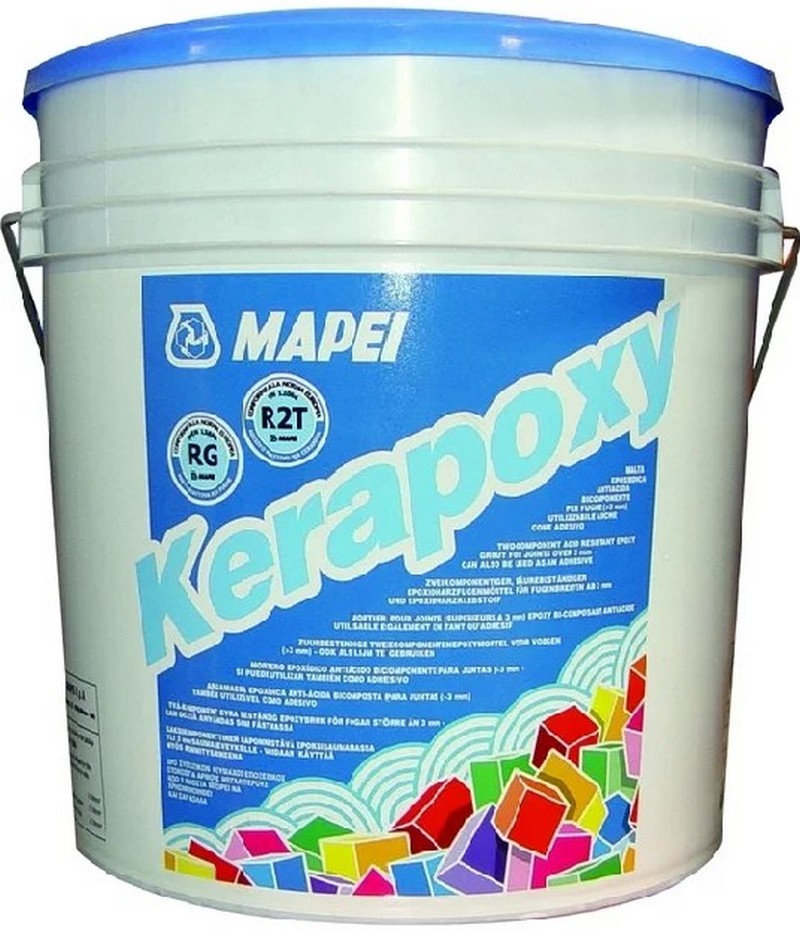
- high strength, resistance to stress; to ultraviolet rays;
- 46 colors;
- adhesive properties;
- anti fungal impregnation;
- walk on tiles treated with this solution after 3 hours;
- the solution does not fade;
- the service life of the finished solution is 20-25 minutes;
- favorable temperature for working with the solution + 12C to + 30C;
- white color, when dry it becomes with a grayish tint;
1st place - Ceresit
votes 2
In consumer reviews, you can see good recommendations in choosing a mixture of Ultra Pox, with great resistance to chemicals. The most popular model is the following: CE40 under the name "Aquastatic", for work in rooms with high humidity. The use of this product will help preserve the finish for a long period of time. The average price of a CE-40 brand solution: from 300 rubles per 2 kg package. A good option for bathrooms and showers. Not recommended for use in kitchens near food preparation areas.
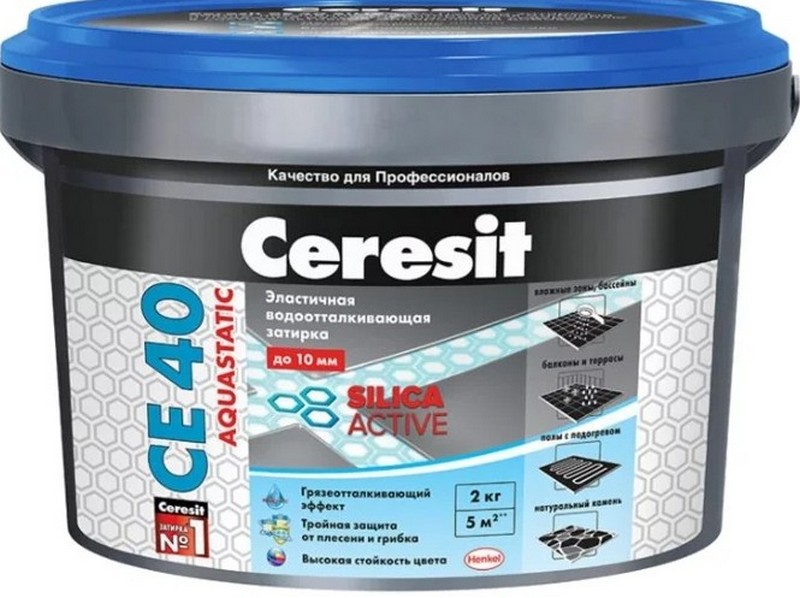
- moisture resistant;
- UV resistant;
- antifungal properties;
- there are 15 different colors to choose from + transparent for white tiles and mosaics;
- antifungal properties;
- antibacterial properties;
- frost resistance;
- rich color palette;
- antifungal impregnation;
- elasticity;
- high adhesive ability;
- after a while, the shade of the material changes color, in some cases it differs from that stated on the package;
- vulnerability to large temperature changes, to high humidity.
Tip: when buying mortar in the store, test a test sample so that there are no surprises after drying.
Conclusion
For processing narrow joints, it is better to give preference to grouts without fillers. Joints of 5-6 mm are best treated with fugues with fine sand. Large seams are sealed with solutions with a special coarse-grained filler.
Which company is better to buy grout? If during construction the main criteria are confidence in the quality and durability of the material, preference is given to well-known companies with a good reputation. Manufacturers of building materials, which are not the first year on the market, use high-quality components for their materials. If the goal is not to remember it for several years after the repair, you should not save on a quality mixture.
new entries
Categories
Useful
Popular Articles
-

Top ranking of the best and cheapest scooters up to 50cc in 2022
Views: 131656 -

Rating of the best soundproofing materials for an apartment in 2022
Views: 127696 -

Rating of cheap analogues of expensive medicines for flu and colds for 2022
Views: 124524 -

The best men's sneakers in 2022
Views: 124041 -

The Best Complex Vitamins in 2022
Views: 121944 -

Top ranking of the best smartwatches 2022 - price-quality ratio
Views: 114983 -

The best paint for gray hair - top rating 2022
Views: 113400 -

Ranking of the best wood paints for interior work in 2022
Views: 110325 -

Rating of the best spinning reels in 2022
Views: 105333 -

Ranking of the best sex dolls for men for 2022
Views: 104372 -

Ranking of the best action cameras from China in 2022
Views: 102221 -

The most effective calcium preparations for adults and children in 2022
Views: 102015

